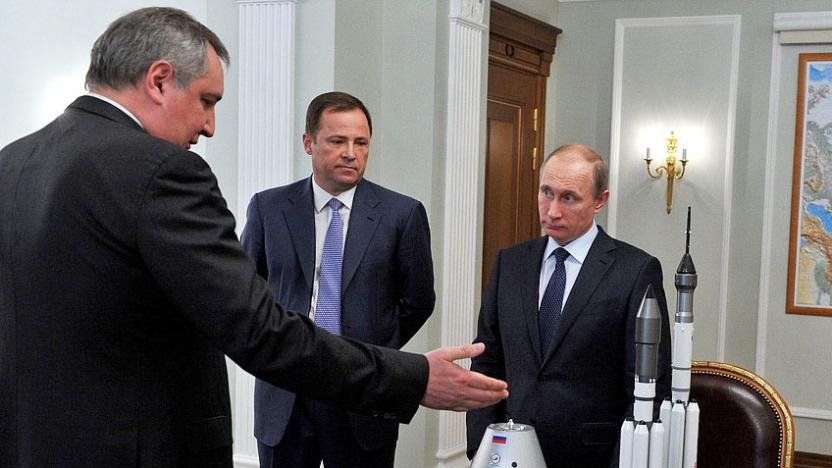TL17LIS
Latest

Russia lost a $45m satellite because of a launchpad mix-up
Despite Russia's ambitious plans for space domination, it hasn't had a great deal of luck bringing its designs to fruition. The Roscosmos program's budget was slashed in 2015 (because of "moral decay") and in April last year a technical glitch postponed the launch of its first rocket from the Vostochny cosmodrome. Now, the team has straight-up lost a satellite after setting it to launch from the wrong place.

Spacesuit 'take me home' feature could save lost astronauts
The greatest fear for many astronauts is to get lost or disoriented during a spacewalk, especially if it's untethered. How do you get back to safety with no sense of direction, little to no help and a limited supply of oxygen? Researchers at Draper might offer a lifeline. They recently applied for a patent on a self-return feature in spacesuits that would automatically navigate back to the astronaut's home ship. A spacefarer in a panic could just slap a button and know they would get back to the airlock.

SpaceX is saving a ton of money by re-using Falcon 9 rockets
SpaceX is deep into the development of reusable rockets to slash launch costs for future missions, so one has to wonder how much its historic SES-10 mission saved. At the 33rd Space Symposium in Colorado, SpaceX President Gwynne Shotwell has revealed that the company spent "substantially less than half" the cost of a new first stage for the Falcon 9 reflight. While she didn't mention specific figures, that means huge savings, since the rocket's first stage accounts for around 75 to 80 of its total cost.

NASA finds long-lost Indian lunar orbiter
India lost contact with its first lunar orbiter, the Chandrayaan-1, back in 2009. Now, NASA has revealed that the agency discovered its location in July 2016 after testing a method that can be used by future lunar missions. Chandrayaan-1 is a relatively tiny cubic probe that measures five feet on all sides, making it the perfect target for the radar experiment conducted by a team of Jet Propulsion Laboratory scientists. The team wanted to find out whether a technique used to observe small asteroids can also spot spacecraft orbiting the moon.

The next 'Lost in Space' reboot starts on Netflix in 2018
Netflix optioned Lost in Space late last November, and we finally have a few more details about when we'll see it. The classic -- and short-lived -- sci-fi reboot is currently slated for a 10 episode run and will premiere in 2018, according to Deadline's sources. The report goes on to say that the series shouldn't stray too far from original creator Irwin Allen's original: The Robinson family (neither the Classic or the Matt LeBlanc version) will find themselves, you guessed it, lost in space with them "battling a strange new alien environment and also their own personal demons."

South Korea's first satellite: lost in space
According to disheartening news out of Korea, the country's Aerospace Research Institute is reporting that they've lost contact with its first multipurpose satellite, the Arirang 1. The satellite, which was launched December 21st, 1999, is suspected of having encountered a mechanical malfunction or misalignment which would have affected power generation. "If the satellite loses proper alignment, its solar panels cannot generate power that is vital for the machine," said an "expert" -- which the source material suspiciously won't name -- which further reinforces our belief that the satellite was appropriated by an alien lifeform, for use in a bizarre mating ritual.



